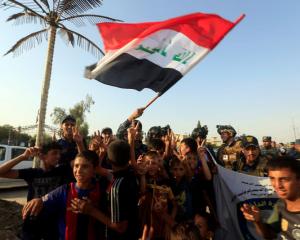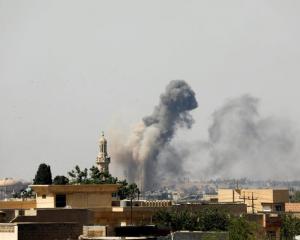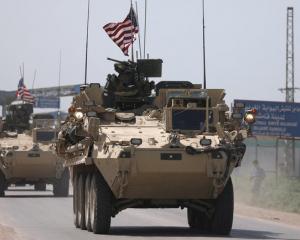New Zealand contributed a small contingent of army engineers for reconstruction and humanitarian work in Iraq, and there have been unconfirmed reports that Special Air Service troop deployments occurred in non-combat roles.
The Clark government resisted considerable pressure from the United States, Britain and Australia to contribute combat troops, and did so, as Helen Clark recalled in her valedictory speech, because: "My government sought to reflect our nation's unique personality in New Zealand's international relations.
For us, New Zealand needed to stand for peace, justice, reconciliation, and sustainability.
Our refusal to participate in the war in Iraq was a decision based on principle - involvement would have ripped our country apart for no good purpose."
Last week, in the depth of the night and in secret, the last coalition force combat soldiers crossed the border into Kuwait, seven years and five months after the invading American army reached Baghdad.
The "War on Terror" thus ended with a whimper, having begun as a fight ostensibly to preserve the civilised Western world.
It proved, like most wars, to be a long-lived catastrophe, despite the overwhelming military firepower of the invaders.
Officially, the war is over, but there remain until next year in Iraq some 50,000 men and women to continue the "reconstruction" programme and to train Iraq's own defence forces.
No doubt they will continue to be targets for "insurgents".
The respected Middle East commentator Robert Fisk had this to say last week about the legacy of invasion: "... the millions of American soldiers who have passed through Iraq have brought the Iraqis a plague.
From Afghanistan - in which they showed as much interest after 2001 as they will show when they start `leaving' that country next year - they brought the infection of al Qaeda.
They brought the disease of civil war.
They injected Iraq with corruption on a grand scale.
They stamped the seal of torture on Abu Ghraib - a worthy successor to the same prison under Saddam's vile rule - after stamping the seal of torture on Bagram and the black prisons of Afghanistan.
They sectarianised a country that, for all its Saddamite brutality and corruption, had hitherto held its Sunnis and Shias together."
This is a bleak view of a war that was intended to bring "democracy" to Iraq, but it is also, in its limited way, true.
There are no victors from the Iraq war; indeed, the actions of the political victims in the West - principally George W. Bush and Tony Blair - may be fairly said to have further eroded public confidence in the democratic political processes of the United States and Britain.
No-one knows exactly how many civilian casualties there have been, but it is thought to be as many as a million dead.
It is relevant to remind ourselves that more than seven years ago, Mr Bush declared the end of combat operations in Iraq with his "mission accomplished" announcement.
Operation Iraqi Freedom eventually cost 4415 American and 179 British lives, with some 30,000 wounded.
There will now be a vacuum of security and government following the inconclusive election in March.
Just a few days ago, 59 men queuing to join the army in Baghdad were killed by a bomber, and the Iraqi chief of staff has called on American forces to remain in the country until 2020.
There cannot be any sense of security for the Iraqi people within the country or from its hostile neighbours, such as Iran.
Nevertheless, the American-led coalition - which justified its invasion on the basis of a contrived belief Saddam had "weapons of mass destruction" - can claim to have restored some semblance of democratic government, and succeeded in removing the dictator Saddam Hussein.
But were these the real reasons why the war took place? After all, no threat to the West or to Western territory was involved; certainly no weapons of mass destruction existed; international law was ignored by both Mr Bush and Mr Blair; the Geneva conventions to do with torture and the like were forsaken; Guantanamo remains a blight on America's claims to sustain the rule of law; and many members of the public in both Britain and American remain convinced they were lied to by their leaders to justify a war that may, in the end, have been purely ideological.









